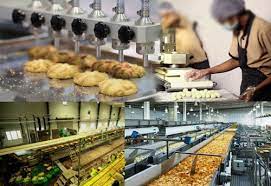The food industry in India has been growing at a very fast pace over the years. However, the restaurant sector has been hit hard by a host of challenges. This article explores the challenges facing the Restaurant sector, and discusses how the culinary industry is embracing Molecular gastronomy and the food processing sector to move towards a more sustainable future.
Modern Indian cuisine
Modern Indian cuisine is a culinary style that uses advanced techniques to create dishes that are not only attractive to the eye, but also delicious to the palate. It draws inspiration from traditional Indian cooking techniques, as well as from local and global influences. The modern style of Indian cuisine has evolved over the years.
Today, it is not only considered mainstream, but also popular in India. In addition, it has brought the country’s food industry into the limelight.
A new generation of chefs are reviving the traditions of Indian cuisine. They are creating innovative new flavors and combining Indian and British culinary traditions.
One of the pioneers of the third wave of modern Indian cooking is Manu Chandra. He was the first chef to take modern Indian cuisine outside the country. His first restaurant, Monkey Bar, opened in Bangalore.
Another pioneer is Gaurav Anand. He is the owner of Baazi and Moti Mahal Delux. He is known for his inventive menus. He offers a variety of light and tasty dishes that draw from the cuisines of South Asia and the Mediterranean.
Molecular gastronomy
Molecular gastronomy is an approach to food science that investigates the processes by which ingredients are transformed during cooking. Scientists and chefs collaborate on the techniques and ingredients used to produce unique culinary dishes.
Molecular gastronomy is an exciting new culinary trend that allows chefs to experiment with their foods and create innovative, science-based culinary art. Chefs use pressurized gas, liquid nitrogen and other advanced technologies to transform ingredients into foams, gels and other emulsions. These emulsions can be used to enhance the taste and texture of their dishes.
Molecular gastronomy also allows chefs to explore the social implications of their dishes, such as how their food is prepared and presented. This technique can be applied to different cuisines across the globe, and can even help retain the natural flavours of foods.
A key technique is using liquid nitrogen to freeze the ingredients. The cold temperature of liquid nitrogen preserves the texture of frozen foods. Other methods of freezing food include using carbon dioxide.
Restaurant sector in a disruptive state of affairs
The restaurant sector in India is in a disruptive state of affairs. There is no doubt that this industry is cash strapped. However, this has not stymied the aggregators. In fact, they are now competing for your dollar by offering lower commissions and better terms.
They may also be the ones to blame for the decline of the dine-in industry. This may be attributed to the COVID-19 virus and the associated lockdown. Although there are no statistics available, estimates suggest that the number of affected eateries in India was a substantial fraction of the total.
Some online food delivery apps are able to handle the logistics of collecting orders from a variety of locations and delivering them to a customer’s door. These include Swiggy, Foodpanda and Uber Eats. While these are not available in every city, they are now dominating the market and the competition is heating up.
Although the COVID was not the only cause of the sector’s plight, it certainly did the trick. Other industries have been hit by a lack of consumer confidence, while others have been affected by concern for individual health and safety.
Food processing as the next step in sustainable development
Food processing is a major link between production and consumption. The processes used to transform agricultural products into food are important for the safety, consistency, and quality of the foods produced. Processing also reduces the risk of food-borne disease.
Food production has caused a variety of environmental problems. It is estimated that 23-33% of global greenhouse gas (GHG) emissions are attributed to the food industry. Although much has been accomplished, many challenges remain. These include depletion of natural resources, rapid urbanization, climate change, and population growth.
New technologies and improvements in sanitation and other areas of food processing can address these issues. Agriculturists and food scientists should work together with nutritionists, civil society, and governments to develop sustainable, nature-positive food systems.
New technologies also save time and ensure that food is safe. Digitalization can enhance efficiency and increase employment. Developing food ecosystems for sustainable urbanization can also help reduce ecological footprints.
As a global challenge, the sustainable future food supply must address depletion of natural resources and climate change. It must also take into account changing demographics and the growing needs of a booming population.
